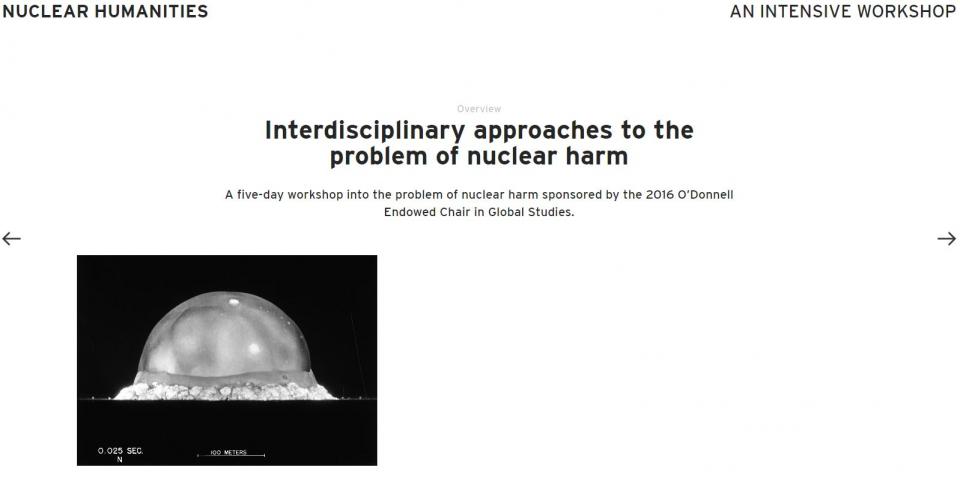Nuclear Humanities (website). https://nuclearhumanities.org/.
A world empty of nuclear weapons eludes us. State-led progress on the road to nuclear abolition has historically been slow, in part because the politico-economic forces driving the modernisation programmes of nuclear weapons states continue unabated. What little hope there remains for achieving a nuclear-weapon-free world must therefore arise out of global civil society. For this, traditional approaches involving trust- and capacity-building initiatives would be enhanced by the alternative insights and understandings about the problem of nuclear harm that can only be derived from the humanities, and in particular environmental philosophy, dialogue, ethics, and the creative arts.
This O’Donnell Visiting Educators Program in the Nuclear Humanities—to be held September 24-28, 2016—enables participants to explore several such alternative pathways to nuclear disarmament, and to consider the possibility of creating one of their own. Geared towards students in the liberal arts the workshops are intended to supplement existing degree programmes in politics, philosophy, history, art, literature, economics, environmental humanities, religion, physics, film and media, gender, anthropology, non-Western thought, as well as race and ethnicity. (Text from Nuclear Humanities)
Nuclear Humanities showcases interdisciplinary approaches to the problem of nuclear harm through a five-day intensive workshop sponsored by the sponsored by the 2016 Ashton J. and Virginia Graham O’Donnell Endowed Chair in Global Studies, based at Whitman College. The workshop was designed and delivered by Dr. N.A.J. Taylor. Day 1 dealt with History, Law and Politics, Day 2 with Ethics, Economics and Communication, Day 3 with Community and Visual Arts, Day 4 with Experiential Fieldwork, and Day 5 with Critical Thinking. A Postscript section highlights reflections from the workshop, while the Resources section is a fount of other projects and websites on the subject.


